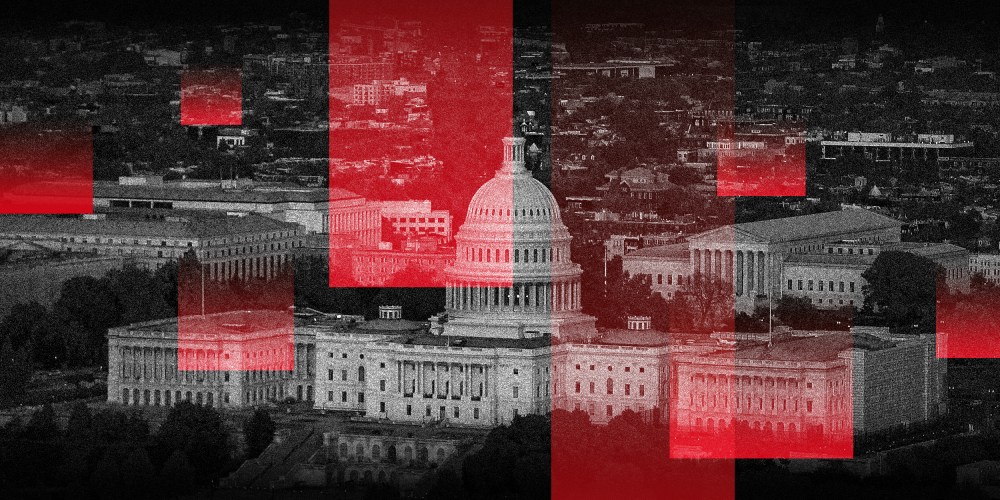The finger-pointing started even before the violent rioters could be cleared from the U.S. Capitol on Jan. 6. The Capitol Police, the FBI and the departments of Defense and Homeland Security have been cited separately and collectively as potentially culpable for failing either to see the intelligence pointing to the assault on democracy and/or to act on what they should have known was coming.
Let’s not allow selective recall by our elected officials to conveniently distract us from the reality that they, too, should have acted upon.
More recent reporting raises the specter of an inside job, in which sitting members of Congress may have facilitated or enabled leaders of the traitorous mob. Yet while Congress orders reviews and contemplates hearings, perhaps its investigations should also consider why its members never acted upon the warnings it has been getting for years.
Any awareness hasn’t prompted Congress to close gaps in the law that would make investigative techniques, group designations and stricter sentences, which currently apply to international groups, available to root out and prosecute those who deserve to be labeled “domestic terrorists.” Let’s not allow selective recall by our elected officials to conveniently distract us from the reality that they, too, should have acted upon the alarms rung within their own chambers.

On May 8, 2019, the House Homeland Security Committee held a hearing about the domestic terrorist threat. During an exchange with Michael McGarrity, then the FBI’s assistant director for counterterrorism, Rep. Yvette Clarke, D-N.Y., seemed surprised to learn that — unlike with international terrorist groups — our government still has no mechanism to designate a domestic group as a terrorist organization.
The transcript of the back-and-forth shows Clarke clearly indicating her concern that the FBI hadn’t “dedicated sufficient personnel and resources” to address the threat and saying, “We don’t even label our organizations as domestic terrorists.”
During the same hearing, Brad Wiegmann, then the deputy assistant attorney general for national security, suggested that current hate crime statutes, which allow for harsher sentences when crimes are committed out of bias and discrimination, could be a model for a domestic terrorism law. But Congress didn’t pass such a law or even debate one, depriving law enforcement of the same tools they use to successfully prevent attacks from international terrorist groups.
After an exchange with witnesses about the rising violent rhetoric on social media platforms and the need to do something about technology companies that permit such harmful posts, Rep. Kathleen Rice, D-N.Y., presciently noted, “We are getting a big red flag waving, and we are not able to act on that information in a timely fashion.” And yet, Congress offered up no new regulations for the technology platforms that serve as extremist echo chambers amplifying hate speech, violent rhetoric and incendiary conspiracy theories; in other words, the kind of dangerous dialogue that fueled the Capitol riots.
It again reflects the glaring lack of understanding, even among our lawmakers, that there is still no law that allows anyone to be charged with “domestic terrorism.”
The next month, the House Oversight Subcommittee on Civil Liberties and Civil Rights questioned law enforcement officials about what subcommittee members worried were disparate approaches to hate crimes compared to terrorism. That hearing didn’t go too well.
One exchange, between McGarrity and Rep. Alexandria Ocasio-Cortez, D-N.Y., went viral. Ocasio-Cortez pressed McGarrity, the FBI’s top counterterrorism official, about what she called “discrepancies” between the FBI’s handling of violent white supremacists and its handling of violent Muslim extremists.
“There are holes, and there are gaps here,” she said as she pointed out that Muslim perpetrators have been charged as “domestic terrorists,” while white supremacists have avoided such charges. As their back-and-forth escalated, McGarrity tried to caution her that “some of the definitions we’re using, I think we’re talking past each other.”
Because, while Ocasio-Cortez’s statement is technically true, it again reflects the glaring lack of understanding, even among our lawmakers, that there is still no law that allows anyone to be charged with “domestic terrorism.” The truth is that any “discrepancies” in prosecution are largely rooted in the laws as passed by Congress, not policy decisions made inside the FBI, a fact Ocasio-Cortez did acknowledge. In recent high-profile mass shootings and attacks that met the definition of terrorism by any standard, federal prosecutors were left to file charges like use of a firearm, possession of explosives and assault.













